As announced yesterday, Sir Christopher Lee is, tragically, no longer with us. But he leaves behind an immense, almost unrivalled legacy of work. Here, in quotes culled from his autobiography and Empire interviews, Lee himself shares his thoughts on eleven of his most notable characters, from his ambivalence towards Dracula to his pride in Jinnah, via some of the most successful franchises in cinema (and television) history.
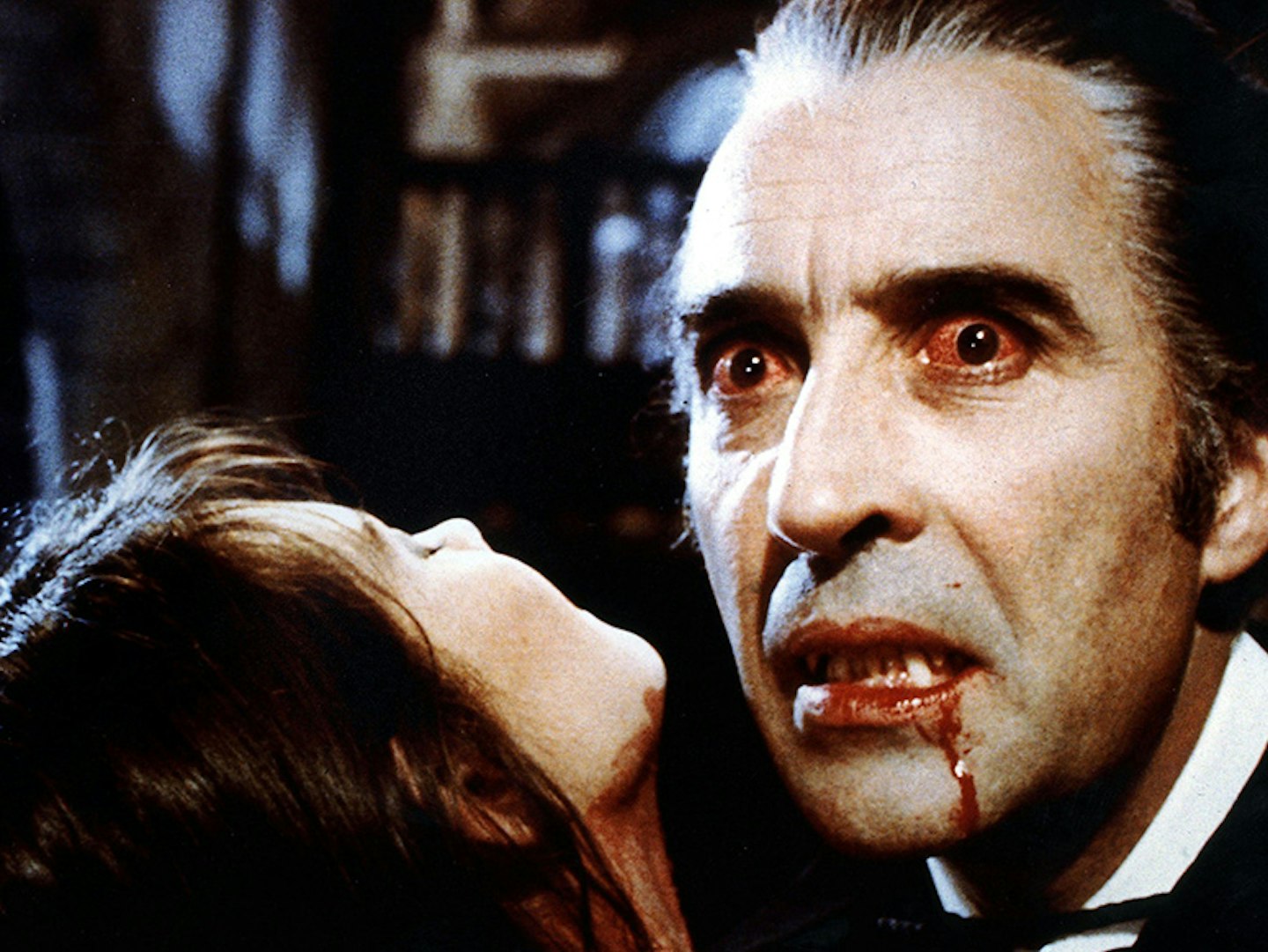
Dracula
Dracula (1958); Dracula, Prince Of Darkness (1966); Dracula Has Risen From The Grave (1968); Count Dracula (1970); Taste The Blood Of Dracula (1970); Scars Of Dracula (1970); Dracula A.D. 1972 (1972); The Satanic Rites Of Dracula (1973); Dracula And Son (Spoof, 1976)
“It brought me a name, a fan club and a second-hand car, for all of which I was grateful. It also, if I may be forgiven for saying so, brought me the blessing of Lucifer. Count Dracula may escape, but not the actors who play him. Eventually I made too many. I am not ashamed of him. My feelings about Stoker’s character never radically altered throughout seven films. Simply, it was aesthetically depressing to see the films step by step deteriorate. Scars Of Dracula was truly feeble. With The Satanic Rites Of Dracula I reached my irrevocable full stop. At the age of 50 I took the firm decision to Draculate no more.”
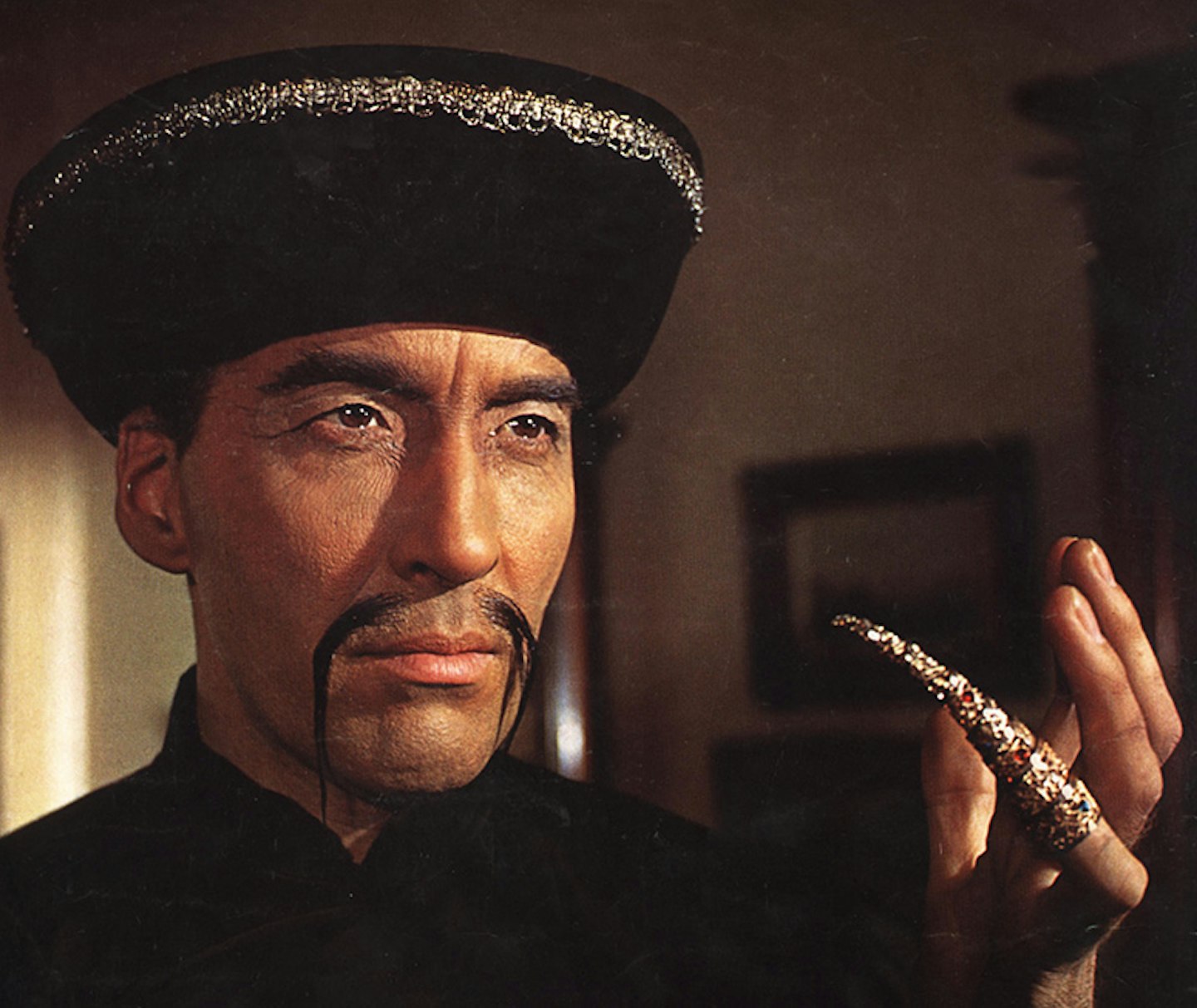
Fu Manchu
The Face Of Fu Manchu (1965); The Brides Of Fu Manchu (1966); The Vengeance Of Fu Manchu (1967); The Blood Of Fu Manchu (1968); The Castle Of Fu Manchu (1969)
“I never had any embarrassment over The Face Of Fu Manchu, where I featured as Sax Rohmer’s arch-villain and deadliest of yellow perils. Alas, in the follow-ups there was much to make me look shifty and suck my paws. The make-up was extremely complicated and uncomfortable. The author’s widow told me I exactly resembled the man her husband had seen one night in foggy Limehouse, a tall and imposing oriental getting out of a Rolls. My confidence in The Face Of Fu Manchu was justified. The picture did well. The Brides Of Fu Manchu was tosh. The Vengeance Of Fu Manchu took me to Hong Kong for some excellent golf. The Castle Of Fu Manchu introduced me to golf in Barcelona.”
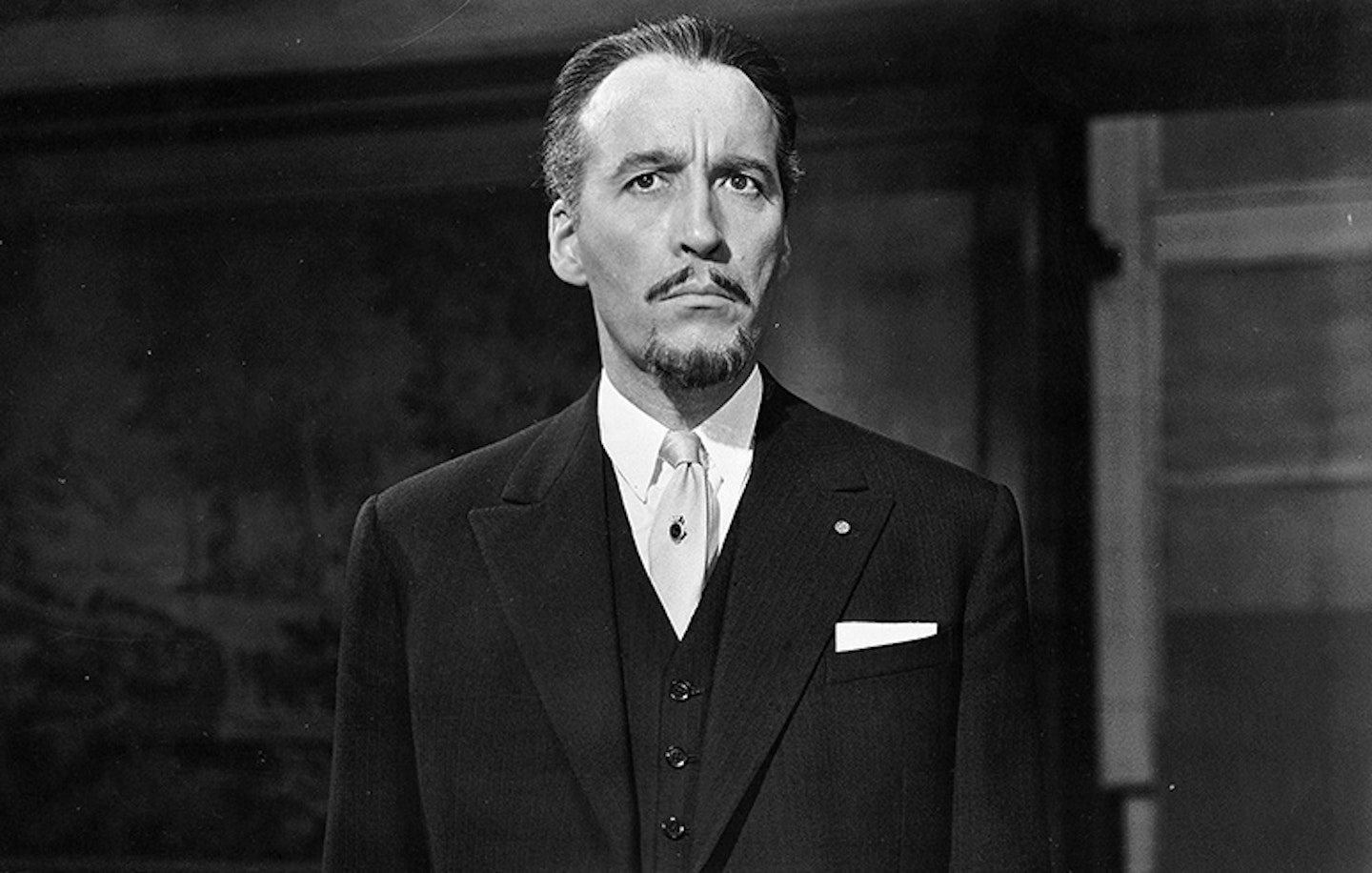
Duc De Richleau
The Devil Rides Out (1968)
“After years of urging black-magic themes on Hammer, I had a breakthrough with The Devil Rides Out. Conservative Hammer had always worried about the church’s reaction to the screening of the Black Mass. But we thought the charge of blasphemy would not stick if we did the thing with due attention to scholarship. I appointed myself black technical advisor, as well as playing a goody, and spent many hours in the British Museum guddling for Satanic trout, and came up with a useful catch, notably the genuine prayer of exorcism we used at the end. And I had the friendship of Dennis Wheatley, the author of the story, who lived on the other side of the square from me in Chelsea.”
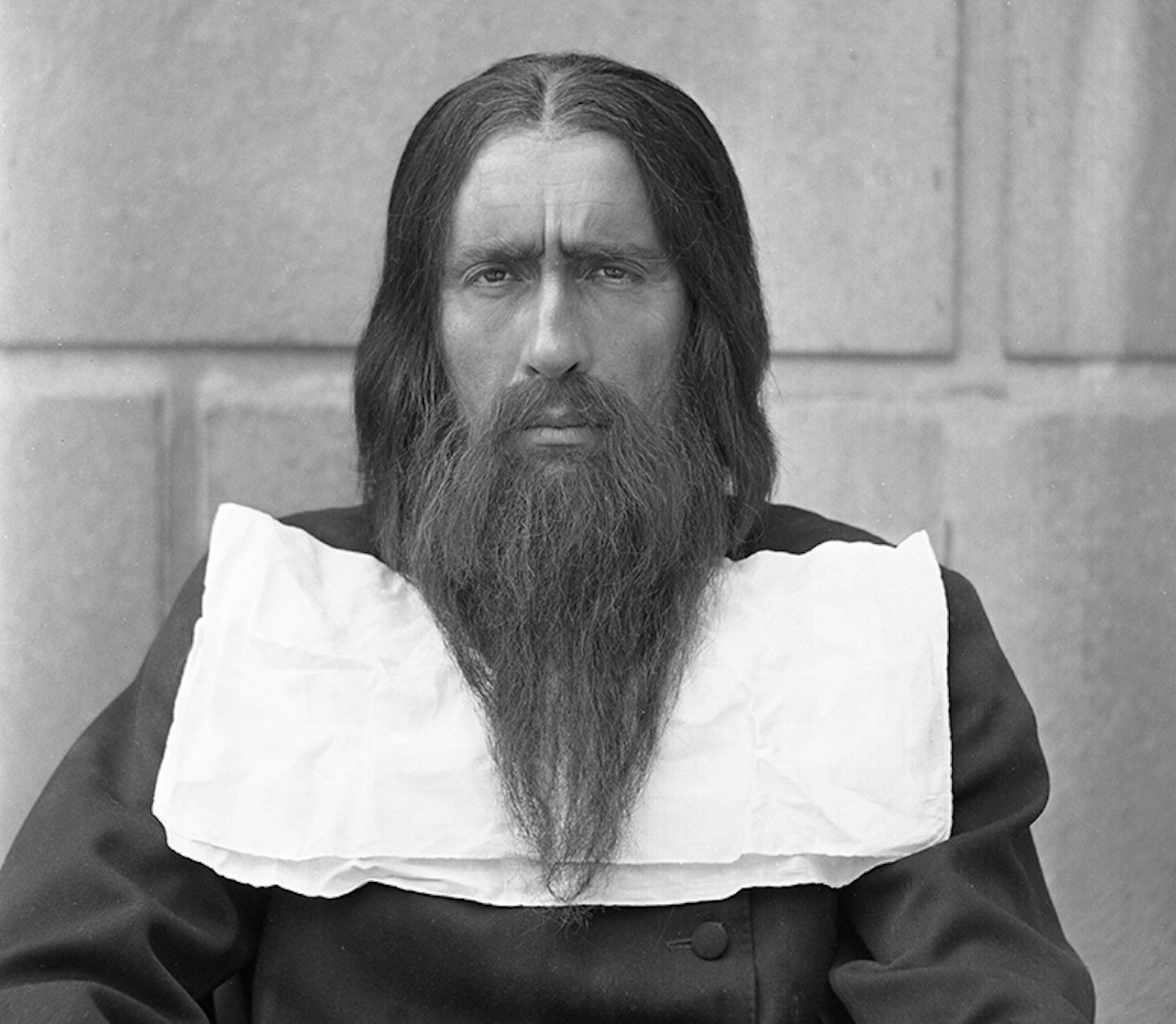
Rasputin
Rasputin: The Mad Monk (1966)
“Healer and rapist, peasant and seer, Rasputin was a legendary enigma, a real actor’s part, one of the best I’d had. From a mass of conflicting evidence, I tried to convey inspired wisdom and grotesque appetites. And I had a long, drawn-out exquisite death to get my teeth into. We couldn’t actually do the death we wanted to because Prince Yusupoff, that same man I’d met as a child when my mother woke me to see Rasputin’s enemy, would never permit it. Surely it is unique in an actor’s life to have met Rasputin’s assassins as a boy, to have played the part on screen in 1965, and to have met Rasputin’s daughter Maria in 1976.”
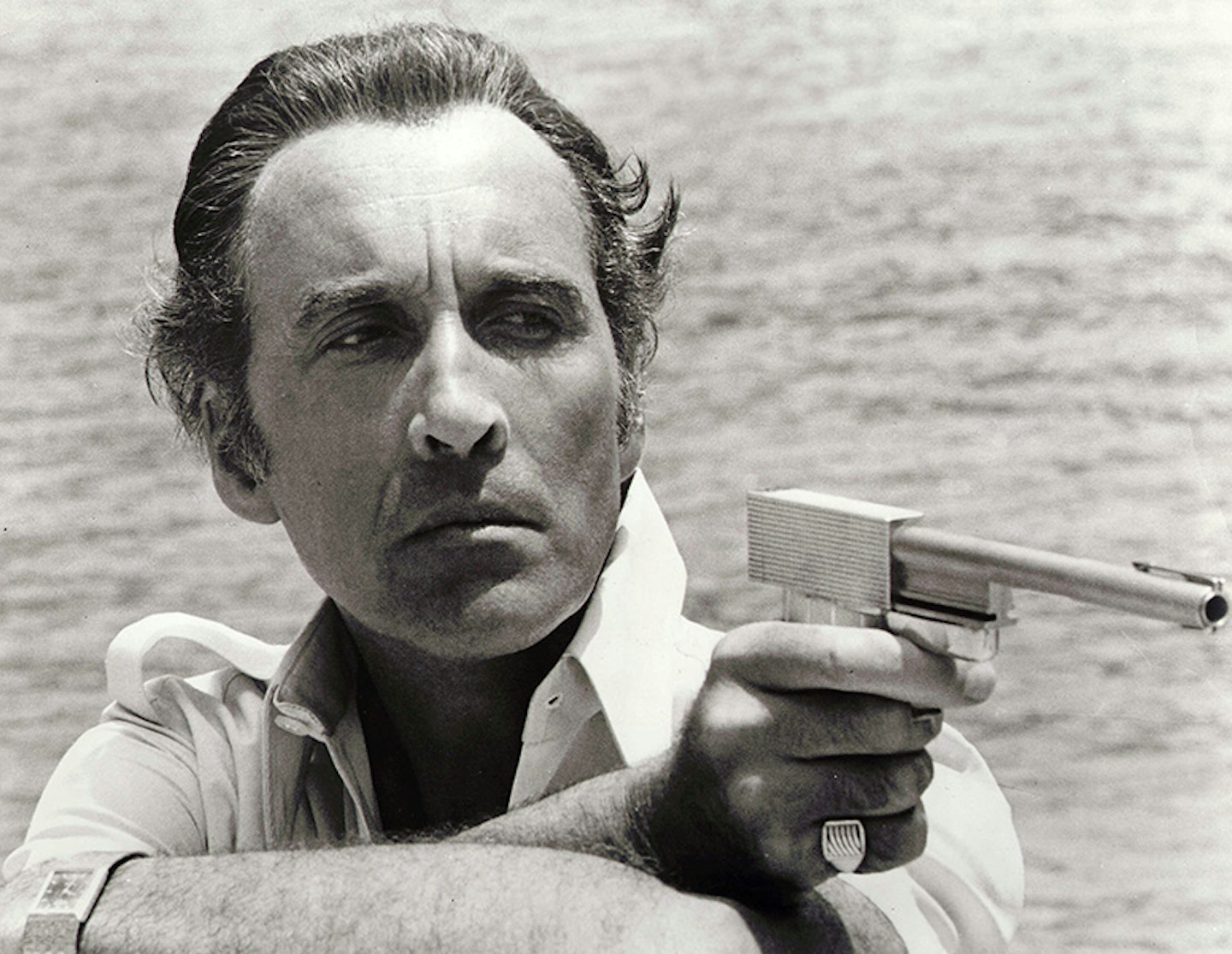
Scaramanga
The Man With The Golden Gun (1974)
"Scaramanga is actually a real name. There was a boy at Eton who Ian Fleming didn’t like at all, so he used his name. With Scaramanga the important thing was that he had a sense of humour: he could be charming, particularly towards the ladies, some of whom, like darling Maud Adams, were terrified of him. He was totally lethal, totally ruthless. Scaramanga – a million dollars a hit. Sounds like my daily rate… Ian and I were distant cousins. I played a lot of golf with him at Royal St. George’s and it was while we were playing there that he came up the idea for that famous golf match in Goldfinger. Another day he said, ‘They’re going to make a film out of one of my books - Dr. No - and I think you’re the perfect person to play him. Would you consider it?’ I told him I’d love to, but Ian wasn’t the sort of person who would do things the next day and I think he forgot. By the time he mentioned it to Broccoli and Saltzman, they’d already cast Joseph Wiseman."

Lord Summerisle**
The Wicker Man (1973)
“I think this might be the one I would take with me to a desert island. Written by Anthony Shaffer, it was the best-scripted film I ever took part in, and it turned out to be a flawed masterpiece. The great thing was that we shot the entire teasing script, the poetry as well as the prose of it, the ripening sex of it, the pretty dances and the lusty ones. It is nature on the move in the spring, the whole community singing in joyful chorus as the grim ritual of sacrifice is enacted. The Wicker Man was in the end horrifying, but not what I would call a horror film. It was about growth, not decay.”
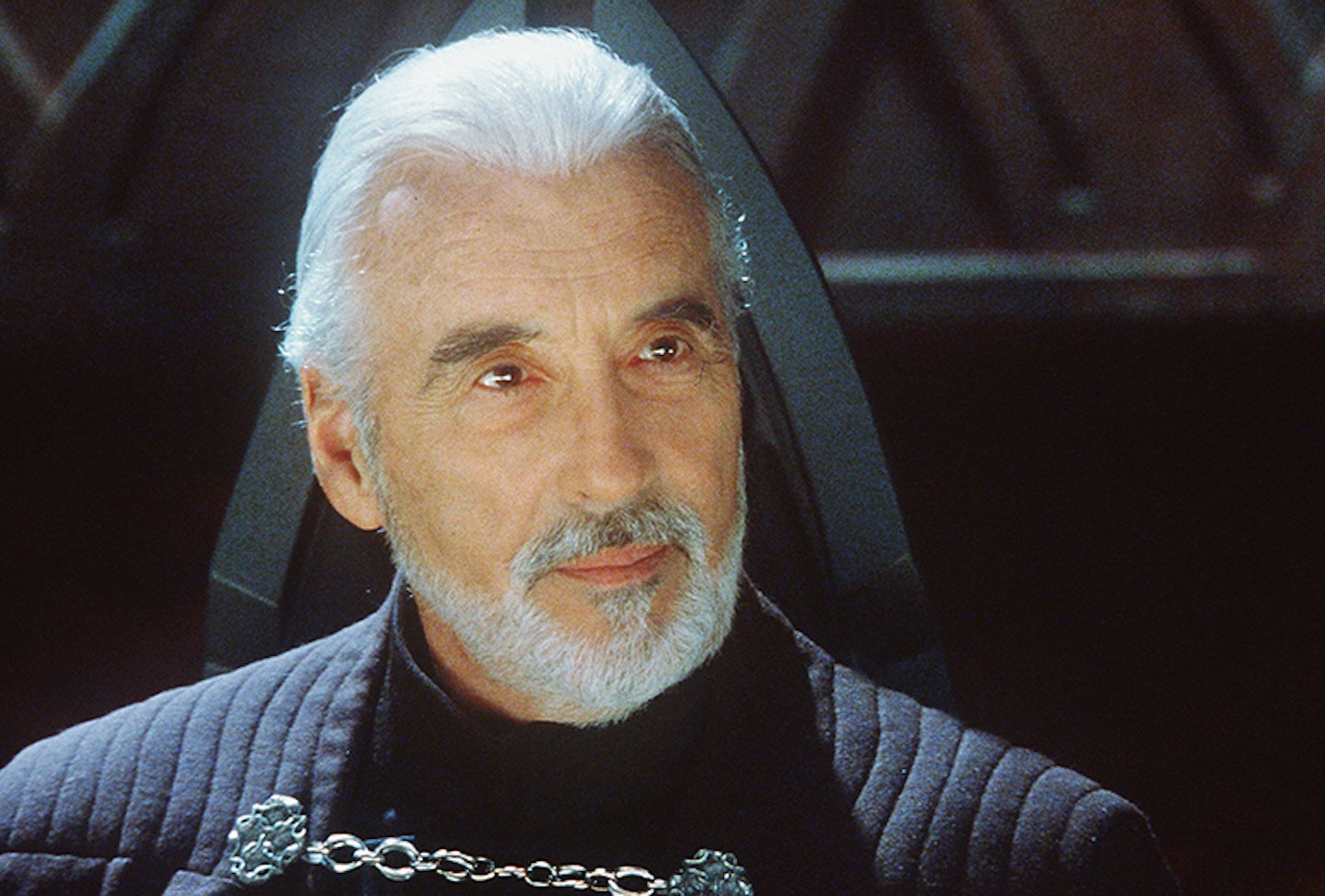
Count Dooku
Star Wars: Episode II Attack Of The Clones (2002); Star Wars: Episode III – Revenge Of The Sith (2005)
“The most important thing about Star Wars is the spectacle. The second most important thing about it is being in it. You do not turn down Star Wars. The Count is the most malignant, dangerous and lethal force, possibly in the entire galaxy. As a disenchanted Jedi who quits the Republic to serve The Emperor, I am a good guy gone wrong, though I have already engineered the death of Liam Neeson in an episode I wasn’t in. I was given a good portion of fights. For my first two I could see my opponents, but with Yoda, the most furious contest of them all, there was no one to see. He wasn’t there. I whirled and twirled and leaped and spun around, striking and parrying and darting about like a man fighting his shadow. It must be said that when George Lucas promised me it would be fun, he meant it.”
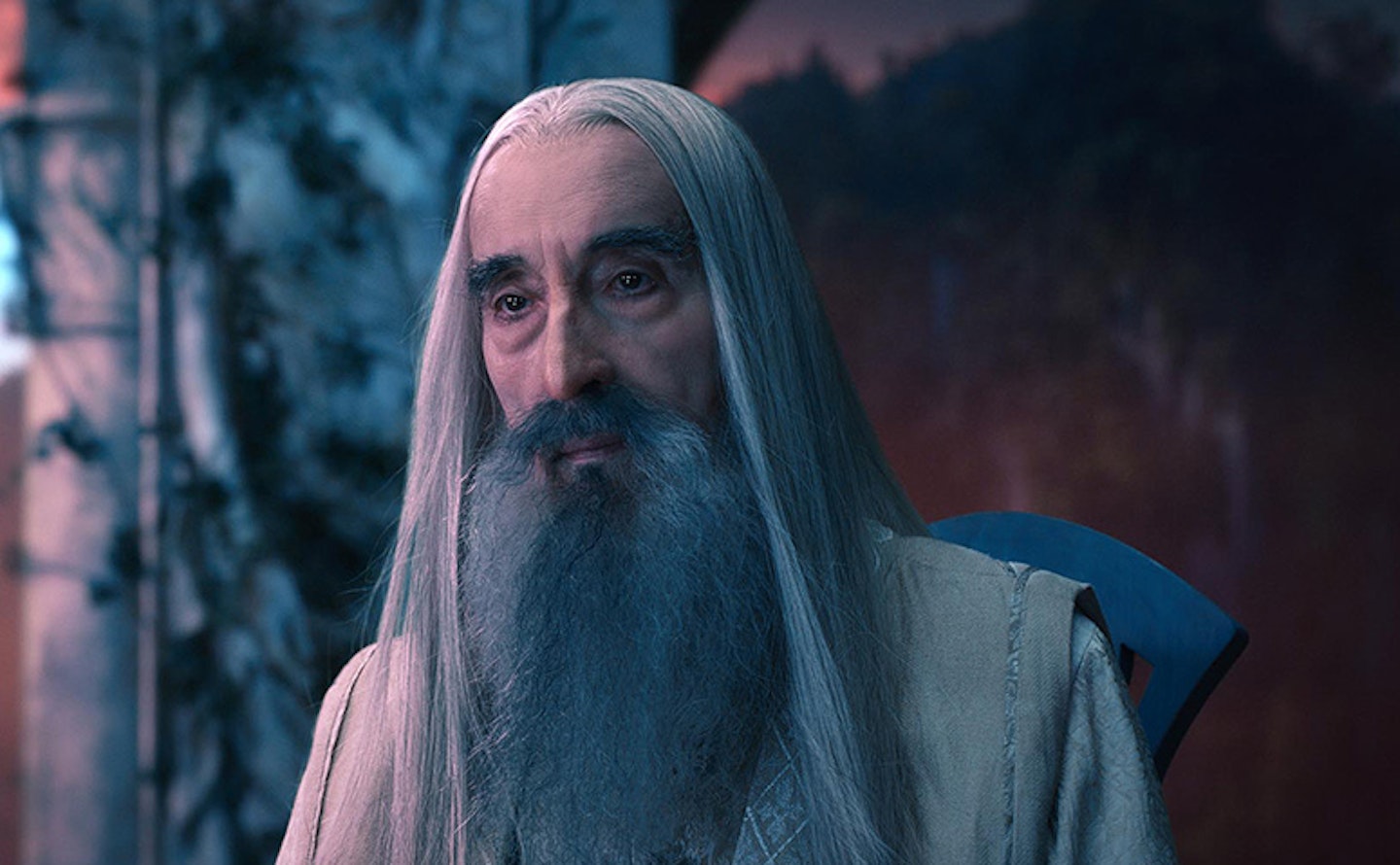
Saruman
The Lord Of The Rings (2001-2003); The Hobbit (2012-2014)
“I read The Lord Of The Rings every year. I was hooked by the first novel in 1954. Reading in a newspaper that there was a chance my bedside book might be filmed, I called my London agents and urged them to get me into the frame. Fran Walsh and Peter Jackson asked me to read for it. I’m not usually asked to read, but for a part in The Lord Of The Rings I would have read anything. Within a short time – just a few months – I learned that I was to play the long, thin, bearded streak of immortal nastiness Saruman. I made four visits to New Zealand, staying ten weeks for the longest period. My own love of correct detail must have become apparent , because once the crew had come to regard me as a Tolkien swot, I couldn’t go into the workshop without somebody trying to catch me out with some abstruse question on the parentage of the characters or the royal succession in Gondor."
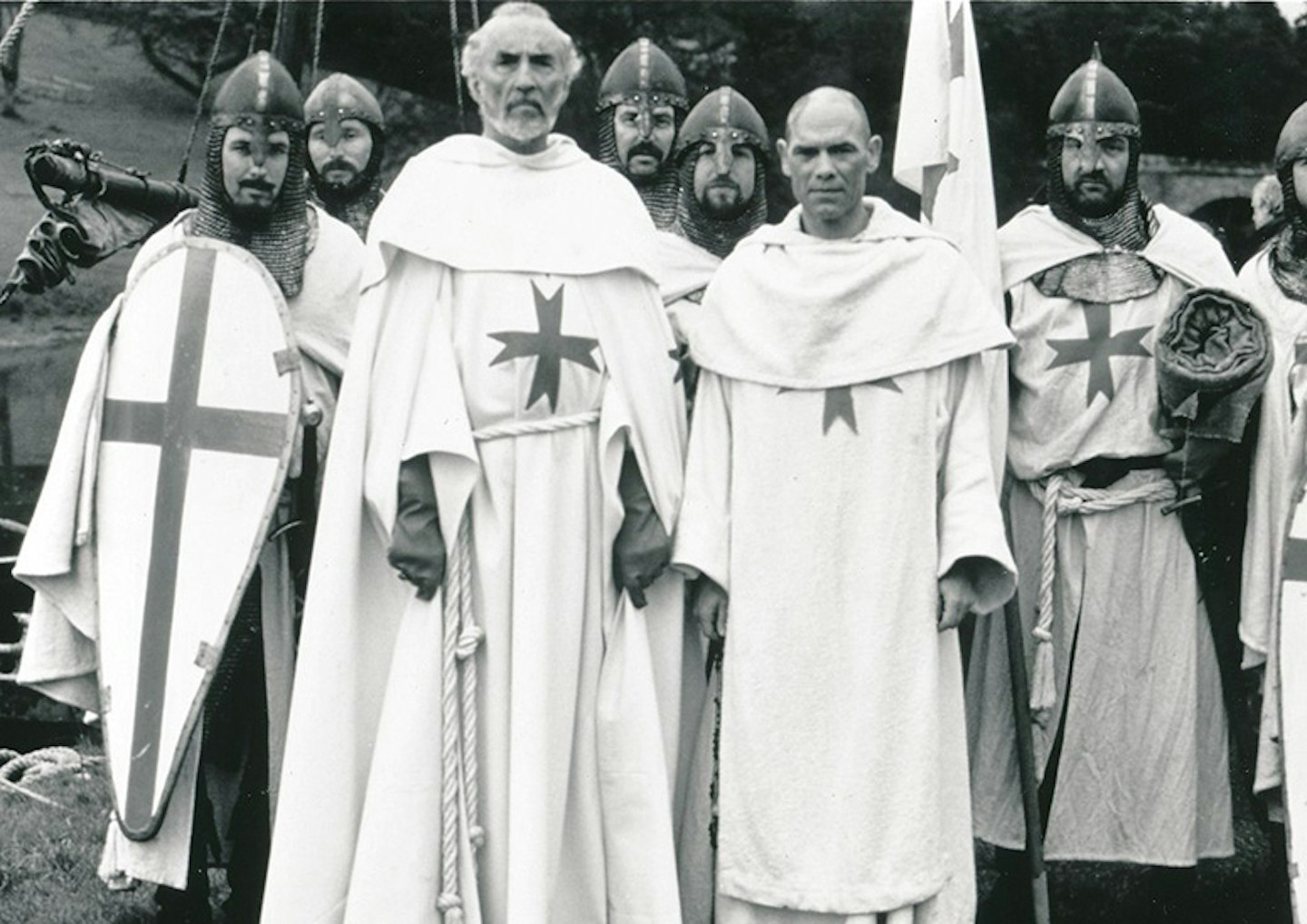
Grand Master Lucas De Beaumanoir / Mr. Flay
Ivanhoe (1997); Gormenghast (2000)
“Ivanhoe was my first time with the BBC, shooting four in a sequence of six in Northumberland. I used my senior citizen’s railcard to make it cheaper for them. I am in the real world a Commander of the Order of St John of Jerusalem, a charity that goes back originally to the Templars. So I like to think of my eminence as Grand Master in this fantasy as a promotion. He comes to England to keep an eye on things and crack down on backsliding. He is outraged to find corruption and sensual indulgence. The rules of the order were specific and harshly maintained, and he must himself have been sexually frustrated. This notion of him was in the script and not my invention.
“Gormenghast was more daring for the BBC, and in the event one of the best things in fiction it has done. Mervyn Peake’s modern classic novel had been seen as unfilmable. The strangeness of the concept and the high intensity of the language had always defeated would-be scriptwriters. It was straight away extraordinary, on first reading [the BBC script], to appreciate how they had transferred Peake’s language into a practical vehicle for television. My role was Mr. Flay, the butler, a nice contrast with the Grand Master in Ivanhoe – social mobility is demanded of and much enjoyed by actors.”
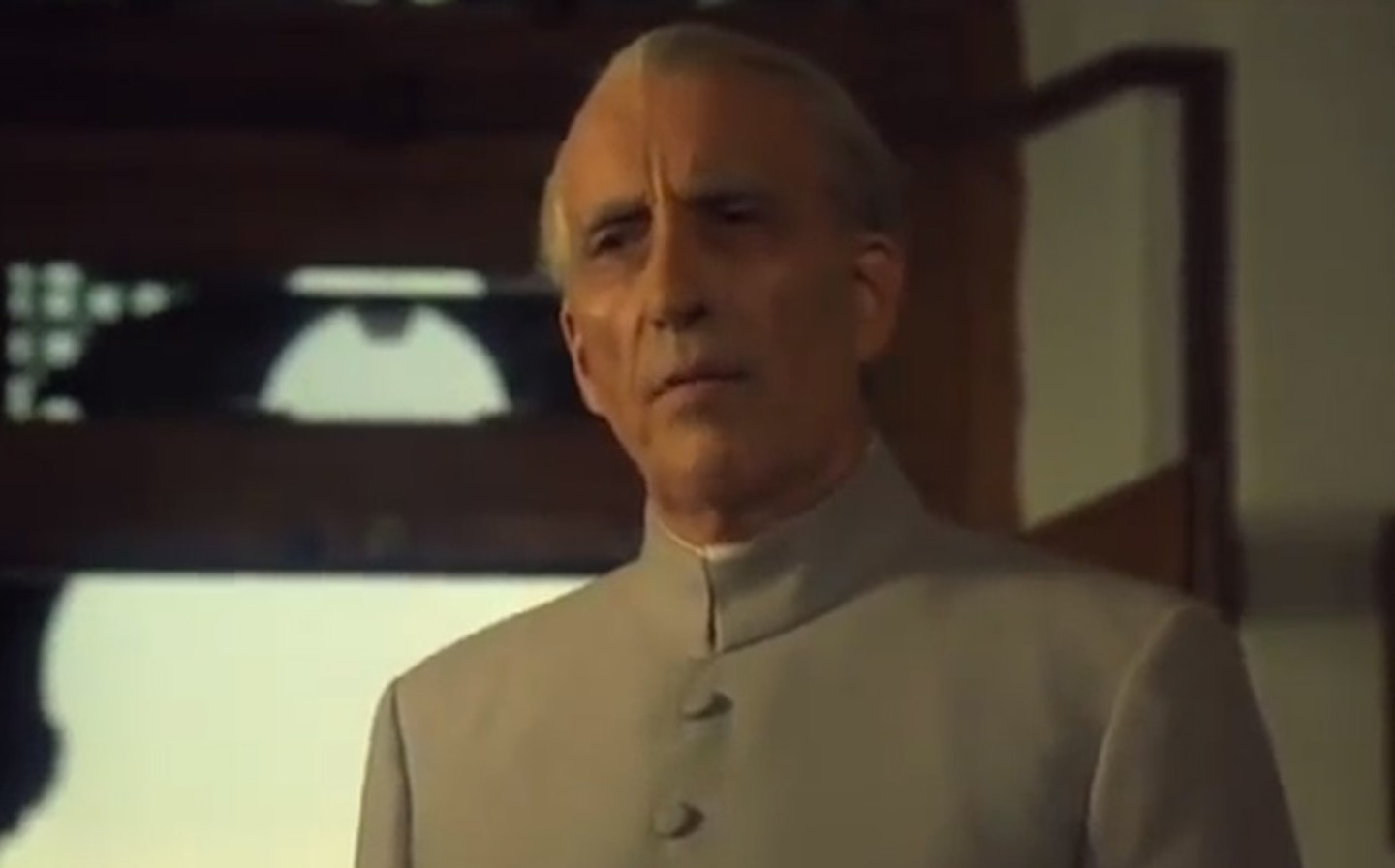
Muhammad Ali Jinnah
Jinnah (1998)
“I studied the minutiae of Jinnah’s gait and voice whenever I could rustle up an old Movietone newsreel or radio broadcast. I imitated the flat arm gesture he used when going through crowds, and coughed a lot in tandem with his cigarette habit. I put on the eyeglass that he used to read, even during his speeches. I made some great speeches in the film, because they were his, just as he made them. I felt a horrible degree of responsibility. Perhaps this is why, right at the end, for the first time in my life, I broke down on camera, in a scene of great pathos involving a little girl in a refugee column whose mother is among the victims of a murderous onslaught. I couldn’t stop crying and those are my real tears on film.”
All quotes from Sir Christopher Lee’s autobiography Lord Of Misrule, published in 2003 by Orion. Apart from Scaramanga, which is ours.